Law
Criminal Defense Attorney: Your Guide to Legal Representation in Criminal Cases
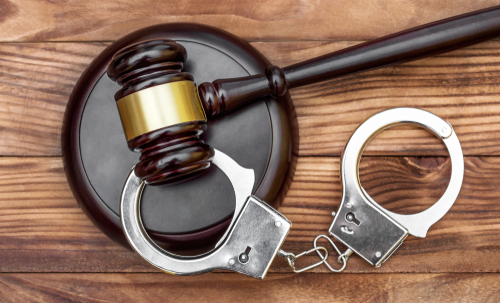
Understanding Criminal Defense Law
Criminal defense law involves defending individuals and organizations charged with criminal activity. The role of a criminal defense attorney is to ensure the accused receives a fair trial and that their rights are protected throughout the legal process. This can involve everything from negotiating plea bargains to representing clients in court.
Why You Need a Criminal Defense Attorney
Being charged with a crime could be a daunting and stressful experience. A criminal defense attorney is essential for navigating the complexities of the legal system and ensuring the best outcome. Here’s why hiring a criminal defense attorney is crucial:
Key Benefits of Hiring a Criminal Defense Attorney
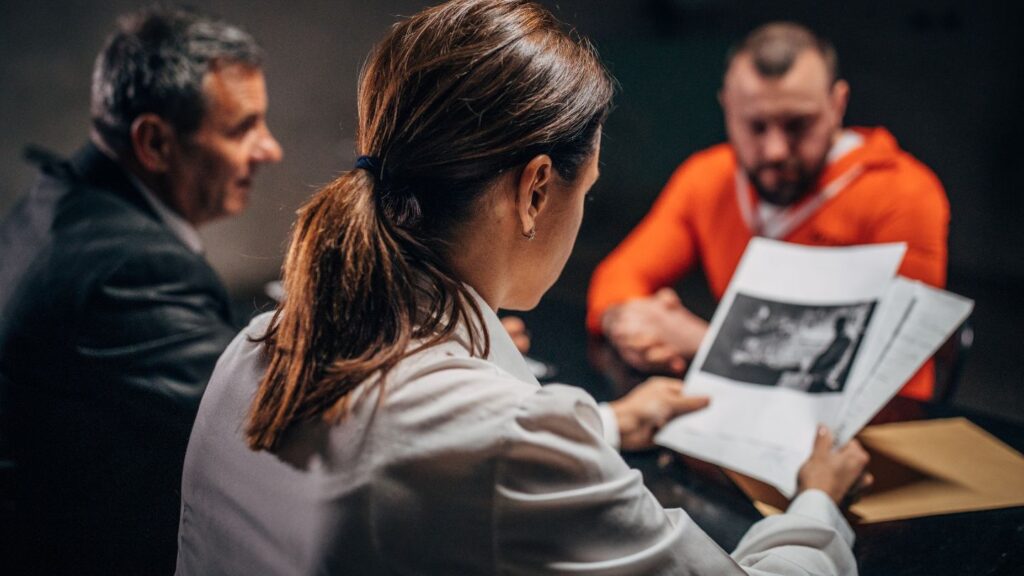
- Expert Legal Knowledge: Criminal defense attorneys have a deep understanding of criminal law and legal procedures.
- Strategic Defense Planning: They develop effective defense strategies tailored to the specifics of each case.
- Negotiation Skills: Experienced attorneys can negotiate plea bargains and reduced charges with prosecutors.
- Court Representation: They represent clients in court, ensuring their rights are protected and advocating on their behalf.
- Protection of Rights: Attorneys ensure that law enforcement and prosecutors adhere to legal standards and respect clients’constitutional rights.
Types of Criminal Cases
Criminal law covers many offenses. Incorporate a common types of criminal cases that defense attorneys handle include:
1. Drug Crimes
These can range from possession of controlled substances to trafficking and distribution. An attorney can challenge the evidence and ensure proper procedures were followed.
2. DUI/DWI
Driving drunk (DUI) or driving while intoxicated (DWI) charges carry severe penalties. A defense attorney can help mitigate these consequences and explore possible defenses.
3. Theft and Property Crimes
These include burglary, robbery, larceny, and vandalism. A lawyer can help establish intent and challenge the prosecution’s evidence.
4. Assault and Violent Crimes
Charges of assault, battery, domestic violence, and other violent crimes require a robust defense strategy. An attorney can investigate the circumstances and present mitigating factors.
5. White-Collar Crimes
White-collar crimes, such as fraud, embezzlement, and insider trading, involve complex financial transactions. A defense attorney with expertise in this region can navigate the intricacies of these cases.
6. Sex Crimes
Sex crimes include offenses such as sexual assault, exploitation, and possession of child pornography. These charges can have lifelong consequences, making legal representation crucial.check blog here
How to Choose the Right Criminal Defense Attorney
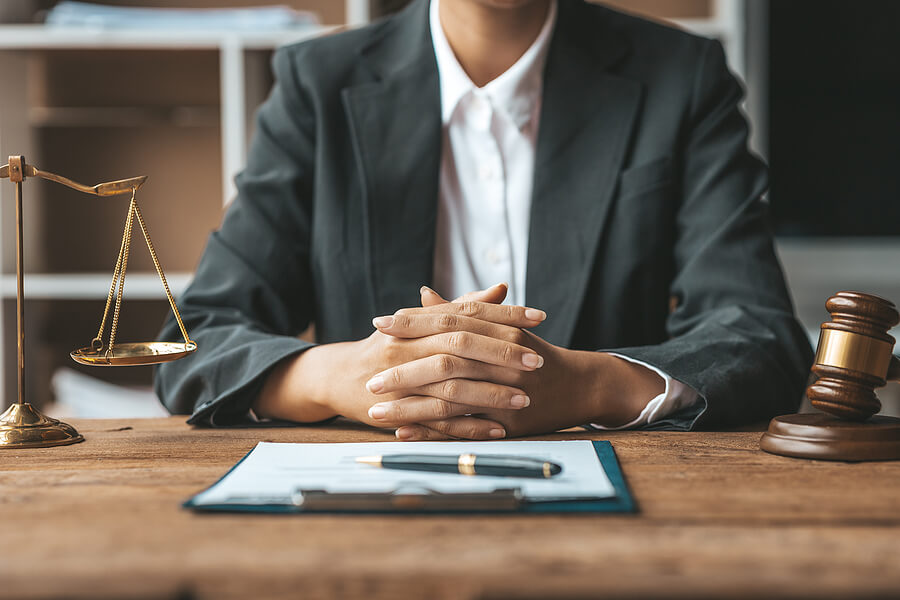
Needs to be criminal defense attorney is vital for the achievements your case. Here are key a few:
1. Experience and Specialization
Choose an attorney with extensive experience in criminal defense and a proven track record in cases similar to yours.
2. Client Reviews and Reputation
Look for attorneys with positive client reviews and testimonials. A strong reputation within the legal community also is a good indicator of professionalism and reliability.
3. Resources and Support
A well-established attorney should gain access to resources like investigators, expert witnesses, and a dedicated support team to build a strong defense.click here
4. Communication and Comfort
Effective communication is key. Ensure the attorney is accessible, listens to your concerns, and makes you feel comfortable throughout the process.
5. Fee Structure
Understand the attorney’s fee structure and ensure it aligns with your budget. Many criminal defense attorneys offer payment plans or flat-rate fees for certain kinds of cases.
The Criminal Defense Process
Initial Consultation
Your journey begins with an initial consultation. During this meeting, the attorney will evaluate your case, explain your legal options, and outline the next steps.
Investigation and Evidence Gathering
The attorney will conduct a thorough investigation, gather evidence, interview witnesses, and consult with experts if necessary to build a robust defense.
Pre-Trial Motions and Negotiations
Your attorney will file pre-trial motions to challenge the prosecution’s evidence and may negotiate plea bargains or reduced charges with the prosecutor.
Trial Preparation
If the case goes to trial, your attorney will prepare a defense strategy, select a jury, and present evidence and arguments in court.
Trial
During the trial, your attorney will represent you in court, cross-examine witnesses, and present a compelling case to the judge or jury.
Sentencing and Appeals
If convicted, your attorney will advocate for a fair sentence and may file appeals to challenge the verdict or sentencing.
Conclusion: Take Action Today
Facing criminal charges can be overwhelming, but may face it alone. A skilled criminal defense attorney can provide the legal expertise and support you ought to navigate the legal system and achieve the best outcome. Don’t wait – contact a qualified criminal defense attorney today to protect your rights and start your defense.
FAQs
What is a criminal defense attorney?
A criminal defense attorney specializes in defending individuals and organizations charged with criminal activity, ensuring their rights are protected and providing representation in court.
How do I choose a criminal defense attorney?
Look for an attorney with experience, positive client reviews, necessary resources, effective communication, and a clear fee structure.
What types of cases do criminal defense attorneys handle?
They handle various cases, including drug crimes, DUI/DWI, theft, assault, white-collar crimes, and sex crimes.
How much does it cost to hire a criminal defense attorney?
The cost varies depending on complexity of the case and the attorney’s experience. Many offer payment plans or flat-rate fees for certain kinds of cases.more blogs
Law
WHEN DOES A CAR ACCIDENT GO TO COURT?

The aftermath of a car accident is hardly ever a clean experience. Beyond the immediately surprise and capability physical injuries, sufferers frequently face a difficult felony panorama. Many are unsure in their rights and what the subsequent steps are.
While many envision automobile accident cases automatically ending in dramatic courtroom battles, the truth is a long way greater nuanced. However, expertise whilst a car twist of fate may necessitate felony action is important for shielding your rights and securing truthful reimbursement.
Not all vehicle coincidence claims are resolved in court docket; right here’s what you need to understand.
Summary
- While car accidents are regularly settled out of doors of court docket, information while legal movement is necessary is important to guard your rights and achieve fair reimbursement.
- Serious accidents, unreasonable coverage agencies, uninsured drivers, and disputed site visitors tickets can all cause court appearances.
- Car twist of fate victims may be entitled to reimbursement for medical bills, lost wages, ache and suffering, and other damages.
- An experienced vehicle coincidence attorney can provide criminal steerage, negotiate with insurance companies, maximize reimbursement, and constitute you in court docket if necessary.
The Dangers of Car Accident
Car injuries are a leading motive of injury and dying inside the United States. The Florida Department of Highway Safety and Motor Vehicles (FLHSMV) reports loads of lots of crashes each year. Often, this effects in injuries and fatalities that leave victims and their families grappling with devastating effects.
Common Injuries Caused by using Florida Car Accident
The pressure of a vehicle twist of fate can inflict a whole lot of accidents, starting from minor to existence-altering. Some of the most common accidents encompass:
- Whiplash: This is a gentle tissue injury to the neck, often as a result of surprising lower back-and-forth movement all through a collision. Symptoms encompass neck ache, stiffness, headaches, and dizziness.
- Broken bones: Fractures can arise anywhere inside the body, with limbs, ribs, and the pelvis being especially vulnerable in automobile injuries.
- Head accidents: These can variety from moderate concussions to severe traumatic mind injuries (TBIs) with long-time period effects.
- Spinal twine injuries: The spinal cord is particularly delicate, or even minor damage can cause paralysis or permanent loss of function.
- Internal bleeding: This may be lifestyles-threatening and requires instantaneous clinical interest.
- Soft tissue damage: This includes sprains, lines, and tears to muscle mass, ligaments, and tendons, often inflicting tremendous ache and limited mobility.click to read
The severity of those accidents notably impacts the criminal implications of a car coincidence.
Most Car Accidents Are Settled Out of Court

In most vehicle twist of fate instances, the worried events or their insurance agencies attain a settlement settlement outdoor of court. This manner they negotiate a reimbursement amount to cover scientific payments, lost wages, and different private harm damages, keeping off the complexities and time concerned in a proper trial.
How the Settlement Process Works
The coverage agency representing the at-fault motive force investigates the twist of fate scene, gathers witness statements, and opinions clinical information to assess the extent of the victim’s accidents. Based on their findings, they provide a agreement amount to compensate the victim for their losses.
The victim can then choose to:
- Accept the offer: If the settlement quantity is deemed fair and covers all their losses, the victim can take delivery of the offer and finalize the claim.
- Negotiate for a higher amount: If the initial offer feels inadequate, the sufferer can negotiate with the insurance company through their own auto accident legal professional or talk to them directly to are seeking a better reimbursement.
- Reject the provide and pursue prison motion: If a truthful agreement cannot be reached via negotiation, the victim has the proper to file a non-public damage lawsuit against the at-fault driver or their insurance employer.
Reasons a Car Accident Lawsuit Might Go to Court
While most vehicle accident cases are settled out-of-court, in a few cases litigation and a tribulation may also nonetheless be vital.
Serious Injuries
If the sufferer suffers severe automobile coincidence injuries with lengthy-term consequences, the insurance corporation’s preliminary settlement provide won’t be enough to cover all the damages. This may want to encompass:
- Permanent incapacity: This substantially impacts a person’s capability to paintings and earn a living, requiring ongoing monetary support.
- Chronic ache: Persistent ache can drastically lessen fine of existence and necessitate lengthy-time period scientific remedy.
- Loss of feature: Depending on the damage, victims may lose mobility or functionality in limbs or other body components.
- Extensive scientific remedy: Severe injuries regularly require multiple surgeries, rehabilitation applications, and ongoing medical care, main to big economic burdens.
- Emotional trauma: Car accidents can reason vast emotional distress, which include post-traumatic stress ailment (PTSD) and anxiety, requiring specialized remedy.read here
In such cases, felony action via a lawsuit might be vital to steady the whole compensation the victim merits for their lengthy-time period physical, emotional, and monetary losses.
Unreasonable Insurance
Insurance businesses are constantly searching out for his or her backside line, and they may keep away from paying up in the event that they assume they are able to. The at-fault driving force’s coverage agency may act unfairly in numerous ways, inclusive of:
- Denying the declare altogether: Insurance companies may also try and deny duty for the twist of fate, even in clear cases of negligence that they need to be protecting.
- Offering a lowball settlement: Insurance businesses may additionally desire you’ll take a brief payout, despite the fact that it’s a whole lot smaller than the authentic price of your damages.
- Delaying strategies: Insurance agencies may additionally intentionally drag out the claims process, setting up miles of red tape and causing needless pressure and financial complication for the victim.
- The silent remedy: Lack of transparency and clear conversation from the insurance business enterprise can avert the agreement manner.
When confronted with such unreasonable conduct, taking prison movement turns into essential to preserve the insurance employer accountable and obtain fair reimbursement. Taking your claim to courtroom may be the only manner to recover the damages you’re fairly owed.
Uninsured Driver
If the motive force who precipitated the coincidence lacks insurance, don’t panic–you can nonetheless recover repayment after an uninsured driving force coincidence. Many states, like Florida, require drivers to hold uninsured motorist coverage. That will cope with a massive chunk of your damages.
However, your coverage might not fully reimburse you. In this example, a non-public harm lawsuit can maintain the motorist or their insurance provider accountable for the damage they’ve triggered.
Traffic Ticket Dispute
In a few cases, you could need to dispute a site visitors citation a police officer issued after the car accident. For instance, you can consider the officer issued your price ticket in blunders or that you have been now not at fault for the auto accident. In that scenario, you may need to contest the price tag in court.
Compensation for Car Accident Victims
Car accidents are worrying occasions that can go away sufferers suffering with critical physical accidents, mental fitness symptoms, and financial pressures. Depending at the severity of the car twist of fate and the resulting damages, automobile accident victims may be entitled to repayment for vehicle coincidence damages consisting of:
- Medical payments: This consists of all past, present, and destiny scientific expenses associated with the accident. Expenses can include health center remains, surgical procedures, rehabilitation, remedy, and ongoing treatment.
- Lost wages: If your injuries save you you from running, you may be entitled to repayment for misplaced wages and profits.
- Loss of earning ability: In a few instances, injuries can create a protracted-time period or everlasting incapacity, This may also effect your capacity to work and earn a dwelling. Compensation may be offered to mirror this lack of future incomes potential.
- Pain and struggling: This includes physical ache, emotional distress, and mental agony because of the accident and its aftermath.
- Emotional distress: The emotional trauma related to a automobile coincidence can be widespread. Victims can be entitleds to compensation for psychological remedy and therapy.
- Property harm: You can also qualify for compensation for harm to your car or personal belongings caused by the auto accident.
The unique amount of reimbursement a victim receives will range relying on the man or woman occasions of the case. Seeking felony steering from an experienced private damage lawyer can make certain that your rights are covered.
Additionally, a vehicle accident attorney will make certain the coverage agency considers all of your ability damages fairly. Their aim is to maximize your repayment on your automobile twist of fate damages.
Seek Legal Help with WHG Regarding Your Car Accident Lawsuit

Upset man driver After Traffic Accident in city road.
Whether or not your case ends up requiring a court docket appearance, protective your self after a vehicle coincidence can be a frustrating and hard process. In those difficult instances, a Florida automobile coincidence attorney may be an invaluable ally.
WHG has huge enjoy dealing with automobile coincidence cases and can help you:
- Expert felony steering: Our team of experienced private harm lawyers can check the specifics of your case, determine the great direction of action, and guide you thru the felony system.
- Negotiation with insurance businesses: We have a demonstrated track document of successfully negotiating with insurance corporations to steady fair settlements for our clients.
- Maximize your repayment: We understand the financial burdens related to car accidents and paintings diligently to make certain you acquire the repayment you truely deserve on your losses.
- Represent you in courtroom: If your case does require a day in court, our professional legal professionals will represent your hobbies and fight on your rights.
Dealing with the complexities of the felony device can be overwhelming, especially inside the aftermath of a automobile twist of fate. At Werner, Hoffman, Greig & Garcia, we recognize what you’re going through. We have the competencies and enjoy that will help you via the trial process for a personal damage lawsuit.
Our group of Florida car coincidence attorneys is prepared that will help you take the first steps towards restoration. Call us at (800) 320-HELP or contact us on line to get began.
Frequently Asked Questions
What must I do immediately after a vehicle twist of fate?
After a car twist of fate, prioritize safety: check for accidents and speak to 911 if needed. Exchange data with other drivers, consisting of names, touch information, and insurance. Document the scene by means of taking images of harm and accidents.
Finally, file the coincidence in your coverage employer as quickly as feasible.
How long do I ought to file a vehicle twist of fate declare in Florida?
In Florida, the general statute of limitations for submitting a private harm lawsuit after a automobile accident is two years from the date of the accident. This manner you have years to file an auto coincidence lawsuit in court docket to are trying to find repayment.
What occurs if I become in part at fault for the car twist of fate?
Florida follows a comparative negligence gadget. This means that even in case you have been partially responsible for the coincidence, you can nonetheless be entitled to compensation. However, the court will reduced the quantity primarily based in your degree of fault. For instance, in case you had been discovered 20% at fault, your repayment would be reduced by means of 20%.
Law
WHAT IS A PERSONAL INJURY LAWYER?
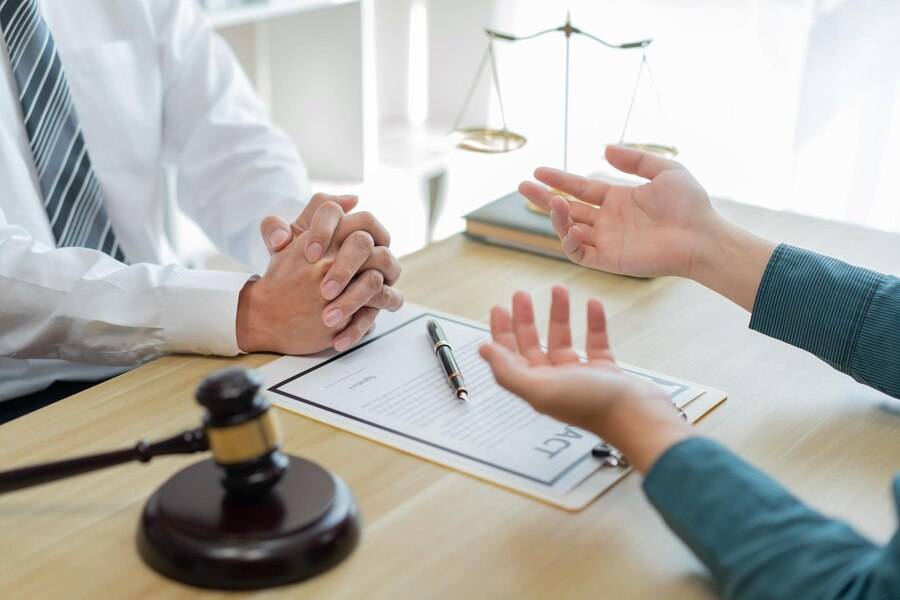
If an coincidence occurs because of every other man or woman’s negligence, it falls underneath private injury lawyer. According to the Legal Data Institute, “Personal injuries consist of every variety of harm to someone’s frame, emotions, or recognition.”
A non-public harm lawyer may be hired to:
- Determine who is answerable for your accidents
- Investigate the accident and gather proof
- Negotiate with insurance agencies on your behalf
- Take your case to trial if wished
If you’ve been injured in an coincidence due to some other man or woman’s wrongdoings or negligence, you may be capable of file a non-public harm lawsuit to get better your damages. To talk with an experienced lawyer, touch us on-line or by using calling (800) 320-HELP.
Types of Personal Injury Cases
- Car accidents
- Truck accidents
- Pedestrian injuries
- Motorcycle injuries
- Bicycle injuries
- Slip and fall accidents
- Workplace injuries
- Medical malpractice
- Child accidents
- Nursing domestic abuse
- Spinal wire injuries
- Traumatic mind injuries
- Catastrophic injuries
- Wrongful loss of life
Understanding Negligence
To have a valid non-public harm claim, someone else wishes to be legally accountable for your injuries. Carelessness refers to a breach of duty of care. In society, we owe every other a certain stage of care in everything we do. For instance, while you get at the back of the wheel of a automobile, you owe anybody else a certain degree of protection and duty.
When someone texts and drives, speeds, or drives recklessly, they’re breaching this duty and performing negligently. If their negligence reasons an coincidence and any other character’s damage, they can be held legally liable.
Negligence applies to all one-of-a-kind forms of private injury regulation, no longer just vehicle accidents. In a slip and fall slant of fate, the negligent birthday celebration is regularly the assets proprietor. In clinical malpractice instances, the negligent party is mostly a doctor or nurse. For bike and pedestrian injuries, it also includes a motive force.read more
The Benefits of Hiring a Lawyer for Your Case

When you pick to symbolize yourself against an insurance business enterprise, 9 out of ten instances, they’ll take gain of you. They preserve the power over injured individuals, and they use it to disclaim claims and provide minimum settlement amounts.
By hiring a lawyer for your case, you’re bringing a skilled negotiator with assets and enjoy into the discussion. Personal damage legal professionals can use their assets—consisting of connections and funding—to make your case impenetrable and impossible to disclaim.
When you pick out to lease a non-public injury attorney for your case, you’re essentially guaranteeing extra cash than you will ever be able to get to your own—even after fees!
Learn greater: What Car Accident Damages Can An Attorney Help Me Recover?
Working with a Personal Injury Lawyer: Timeline
A private harm lawsuit can take everywhere from a few months to even a few years. Here’s a brief timeline of what you could anticipate from begin to complete.
Initial Consultation: Your lawsuit will start with an preliminary session. During this consultation, you’ll be requested approximately your accident and resulting injuries. This consultation will assist us determine whether or no longer you have a feasible case.
Investigation: During our research of the accident, we’ll collect proof, talk with eyewitnesses, rent expert witnesses, and evaluation scientific records and other documentation. This will assist us construct an iron-clad case to bring to the coverage business enterprise.
Filing the Lawsuit: Your lawsuit could be filed via a non-public injury legal professional with years of revel in. They’ll be capable of answer any questions you may have all through the manner.
Negotiation: We’ll negotiate with the insurance corporation on your behalf, ensuring that you get complete and truthful repayment to your damages. If they do now not agree to pay a truthful settlement, we’ll take your case to trial.
How to Find the Best Personal Injury Lawyer
Unfortunately, there are a whole lot of bad lawyers obtainable. Many lawyers take on lots of instances in quick succession and settle them early. These are called agreement turbines, and they must be avoided at all expenses.
To make sure you’re selecting the first-rate lawyer viable to your case, you ought to:
- Make sure they have got revel in on your particular discipline. If you’re hiring a vehicle accident lawyer, make certain they’ve worked on vehicle twist of fate instances before
- Ask questions! Learn approximately their verbal exchange style, experience, past outcomes, and greater
If you or someone you adore has been injured in a private harm twist of fate, our group of experienced personal damage lawyers are right here to help you. To examine extra approximately how we are able to help or to time table a unfastened case evaluation, please touch us online or at (800) 320-HELP.
Frequently Asked Questions
How long does a personal injury case take?
Personal harm instances can take everywhere from some months to a few years. The negotiation method may be long, as insurance businesses are frequently stubborn. Your legal professional could be capable of come up with greater statistics approximately the duration of your case.
Can I represent myself in a private harm case?
You can usually pick out to represent your self in a private injury case, but it’s unlikely that you’ll get hold of enough repayment to cover all of the damages you’ve skilled. However, you could take measures to defend your declare. For instance, taking steps after a pedestrian twist of fate to document the scene and seek hospital treatment can assist your case inside the lengthy-run.
How do I know if I even have a legitimate personal injury case?
If you’re curious approximately whether or no longer you have got a legitimate non-public harm case, communicate with one in all our experienced attorneys. We offer a loose case assessment, in which we will decide whether or no longer you’ve got a valid case.click blog
Law
The Role of Mesothelioma Attorneys: Navigating Asbestos-Related Claims
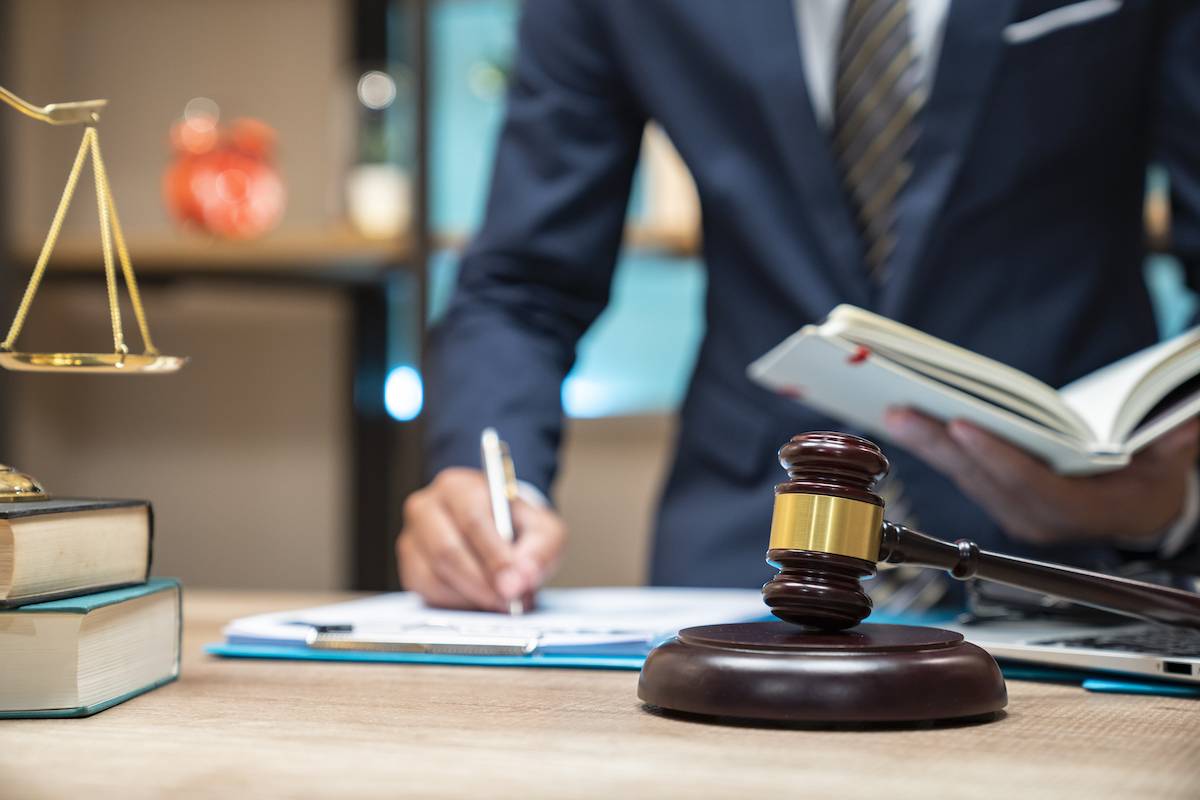
Introduction
Mesothelioma, a rare and aggressive cancer, often arises from exposure to asbestos. This diagnosis not only poses significant health challenges but also triggers financial burdens due to medical expenses and lost income. Securing compensation through legal avenues can be daunting, underscoring the critical need for a proficient mesothelioma attorney. In this blog, we delve into the pivotal role of mesothelioma attorneys, elucidate the qualities to seek in legal representation, and delineate the process of pursuing asbestos-related claims.
Understanding Mesothelioma and Asbestos Exposure
Mesothelioma, starting in the lining of the lungs, abdomen, or heart, stems primarily from asbestos exposure. This naturally occurring mineral, once extensively used in various industries, poses severe health hazards. Even incidental contact with asbestos fibers can culminate in mesothelioma decades later, imposing substantial financial strains on affected individuals and their families.click blog
The Significance of Mesothelioma Attorneys
- Specialized Expertise: Mesothelioma attorneys possess specialized knowledge in asbestos litigation, comprehending the nuances of historical asbestos usage, industry involvement, and medical intricacies surrounding mesothelioma.
- Maximizing Compensation: Proficient attorneys meticulously calculate the comprehensive costs associated with mesothelioma, including medical expenditures, lost wages, and intangible damages, striving to secure optimal compensation for their clients.
- Navigating Legal Complexities: Asbestos-related litigation entails multifaceted legal procedures and involvement of numerous defendants. Competent attorneys adeptly navigate these complexities, championing the rights of mesothelioma victims.
- Contingency Fee Basis: Most mesothelioma attorneys operate on a contingency fee basis, alleviating financial burdens on clients by ensuring legal representation without upfront costs.
Selecting the Right Mesothelioma Attorney
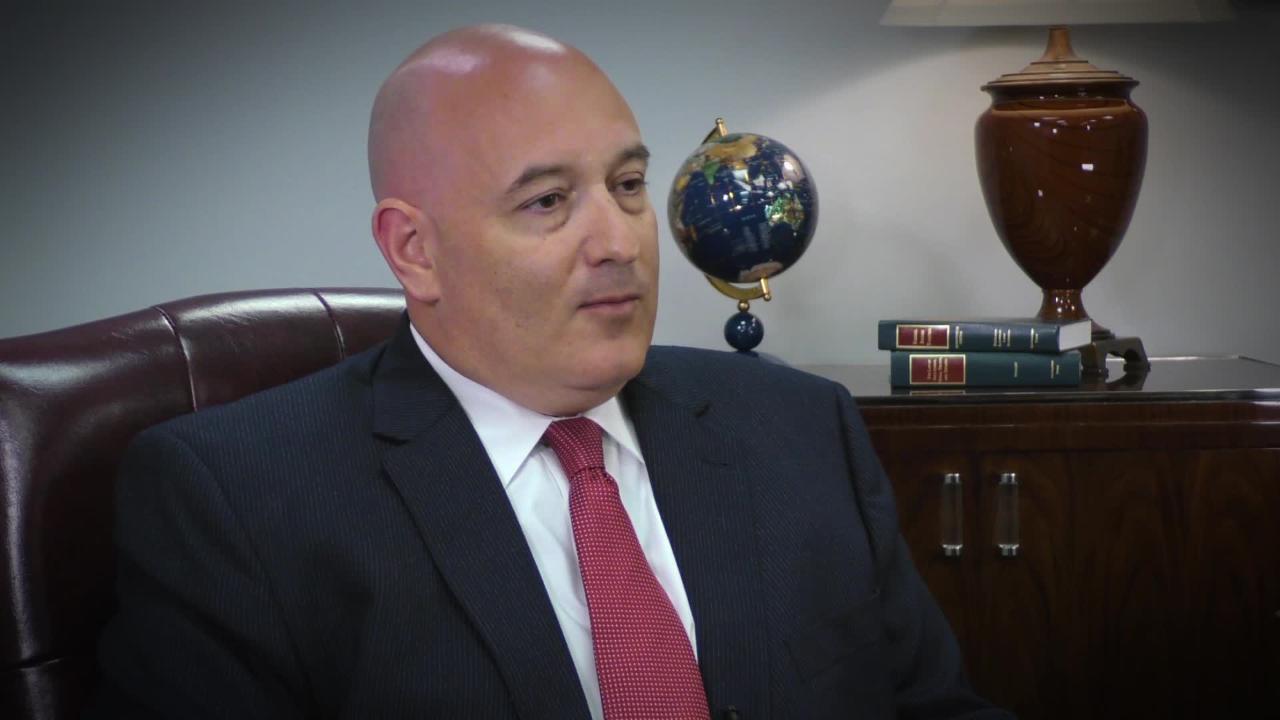
- Experience and Track Record: Prioritize attorneys or law firms boasting a robust track record in successfully litigating mesothelioma cases, indicative of their proficiency and efficacy.
- Specialization: Opt for attorneys specializing exclusively in asbestos litigation, equipped with the requisite expertise to handle intricacies inherent to mesothelioma claims.
- Client Testimonials and Reviews: Scrutinize client testimonials and reviews to gauge the attorney’s reputation, competence, and commitment to client satisfaction.
- Resources and Network: Esteemed mesothelioma attorneys maintain extensive networks comprising medical experts, investigators, and other resources instrumental in substantiating claims.
- Personal Rapport: Cultivate a relationship of trust and empathy with your attorney, ensuring seamless collaboration throughout the legal proceedings.
The Legal Process for Mesothelioma Claims
- Initial Consultation: Commence the legal journey with a thorough consultation, where the attorney evaluates your case, elucidates legal options, and outlines the ensuing course of action.
- Lawsuit Filing: Subsequently, the attorney initiates legal proceedings by filing a lawsuit against culpable entities, which may include manufacturers, employers, or other stakeholders.
- Discovery Phase: Both parties engage in information exchange and evidence gathering, with your attorney meticulously collating medical records, employment history, and other pertinent documentation.
- Settlement Negotiations: A substantial proportion of mesothelioma cases culminate in settlements. Your attorney adeptly negotiates with defendants to attain a fair settlement reflective of your losses and suffering.
- Trial Proceedings: In cases necessitating trial, your attorney zealously represents your interests in court, presenting evidence, advocating your cause, and seeking just compensation.
Conclusion
Dealing with a mesothelioma diagnosis poses formidable challenges, but enlisting the services of a seasoned mesothelioma attorney can significantly alleviate the burden. From adeptly navigating legal intricacies to securing rightful compensation, specialized legal representation is instrumental in navigating the complexities of asbestos-related claims. If you or a loved one grapples with mesothelioma, don’t hesitate to seek legal assistance. Contact a proficient mesothelioma attorney today and embark on the path toward justice and restitution.home
-

 Business2 months ago
Business2 months agoNippyFiles: The Complete Guide to Downloading and Sharing Files
-

 Celebrity7 months ago
Celebrity7 months agoSean Kaufman Ethnicity, Wiki, Age, Career And More
-

 Tech3 months ago
Tech3 months agoWhat is Proxiyum? A Complete Guide to Web Proxy Services
-

 Sports2 months ago
Sports2 months agoArcenturf Gagnant: Your Ultimate Guide to Smart Turf Betting
-

 Celebrity7 months ago
Celebrity7 months agoJack Champion Height, Biography, Wiki, Age, Career And More
-

 entertainment2 months ago
entertainment2 months agoHD Hub 4u: Your Ultimate Guide to Free Movie Downloads
-

 Celebrity7 months ago
Celebrity7 months agoDerek Lipp Wealth: What Is His Net Worth in 2023?
-

 Celebrity7 months ago
Celebrity7 months agoWho Is Jennifer Hermoso Partner? Bio, Wiki, Age, Career, Net Worth And More

